Want to experience the best of Australia’s wild desert heart in a way that takes care of the Territory?
This road trip makes it easy to travel sustainably, by making choices that are not only good for the environment but for local communities and cultures. Learn from Traditional Custodians, who have been living sustainably for generations, taste foods naturally adapted to this land, and be awed by the Red Centre’s ancient geology.
Day 1
Meet the majestic West Macs
The low-slung West MacDonnell Ranges on Alice Springs’ doorstep have some spectacular secrets. Take an easy daytrip from town to discover geological gaps and gorges, oasis-like waterholes and unexpected colours.
Don’t miss Standley Chasm, a deep, red notch in the mountains known as Angkerle Atwatye to the Arrernte people, who own and operate this natural attraction. Your entry fee, café and gift shop purchases support the Traditional Owners and their work to preserve this sacred site. Take a self-guided walk, or cultural tour led by an Aboriginal guide.
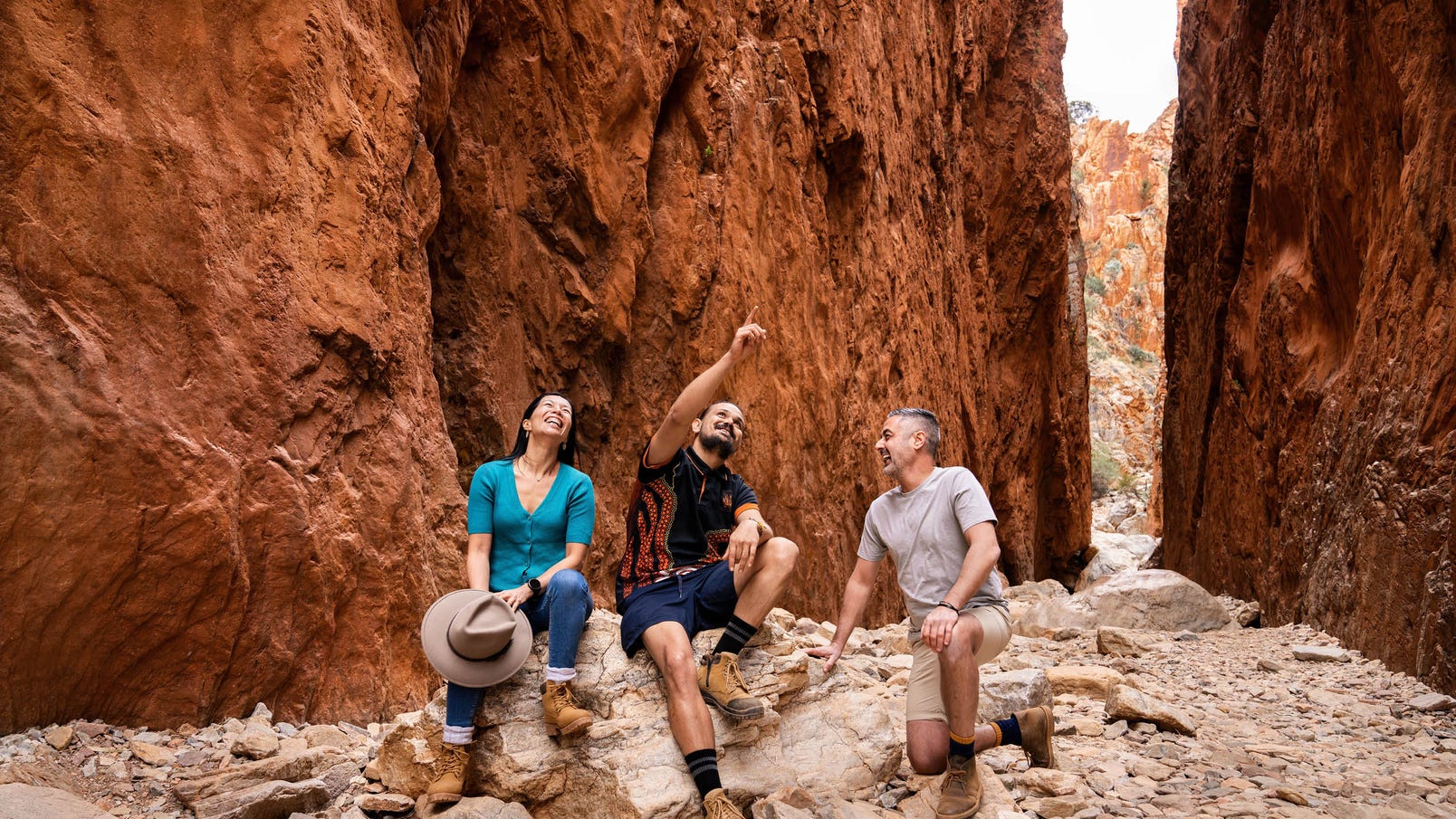
Explore art & heritage
Established in 1877 as a Lutheran mission, Hermannsburg has become an important centre of Aboriginal art since Albert Namatjira started painting watercolour landscapes here in the 1930s. At this historic precinct now owned and managed by Arrernte people, see heritage buildings, works by the current generation of artists – including the renowned Hermannsburg Potters – and enjoy the tea rooms’ refreshments.
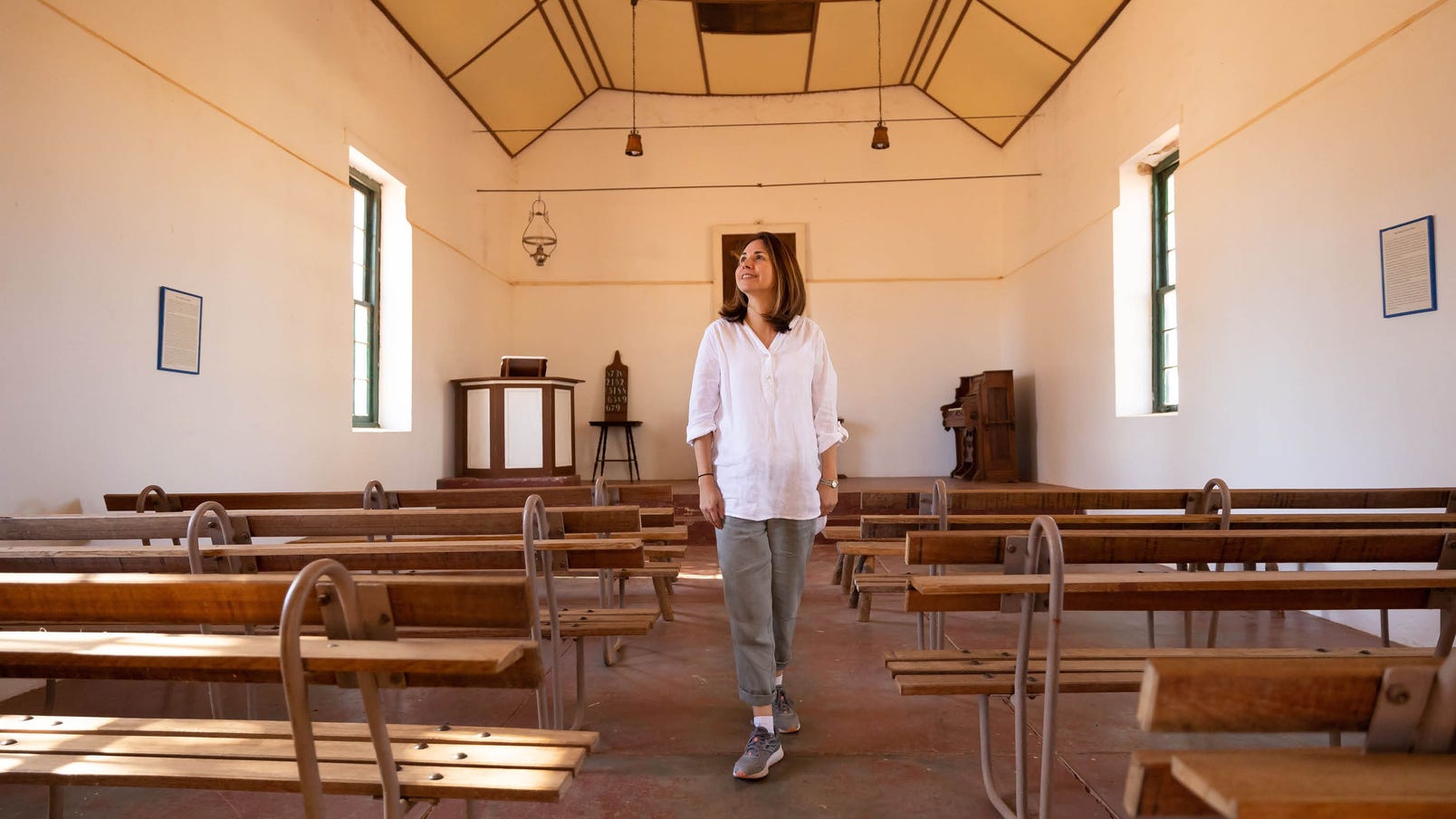
Kick back in Alice
Are you caravanning or camping? Then settle in at Wanngardi Caravan Park, whose sustainability focus includes easy-to-use recycling stations and bins for organic waste which is loved by the resident chickens and worms. If it’s Saturday, sort your self-catering needs at the Food for Alice market. Supporting local farmers and producers also means minimising food miles.
Other dinner options include DoubleTree hotel’s Saltbush restaurant, where native ingredients are celebrated, and Desert Lantern Restaurant, which provides practical experience for local hospitality and cooking students.
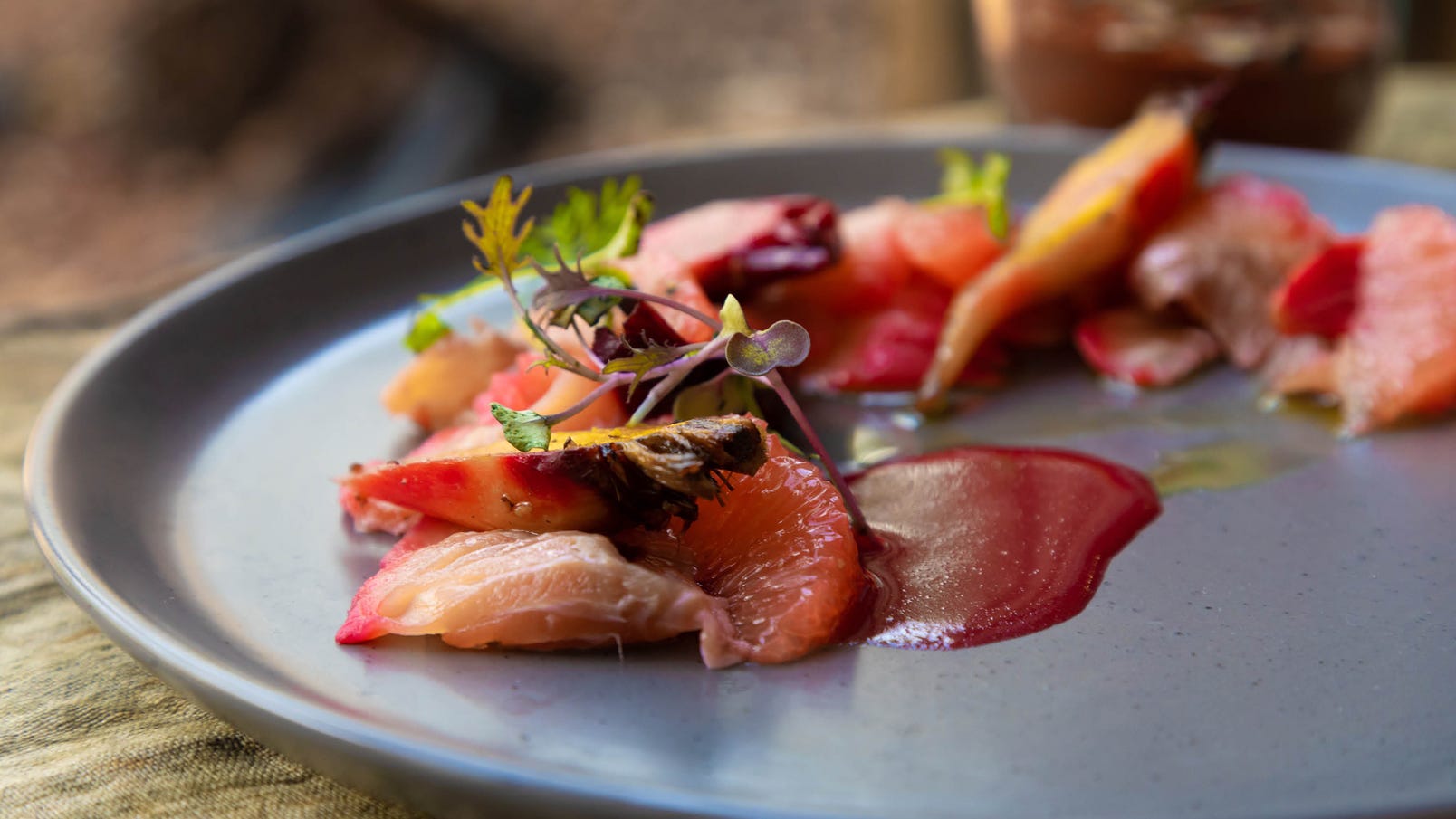
Day 2
Artfully while away the morning
You’re exploring Alice Springs today, so consider renting Red Centre Adventures’ bikes for eco-friendly transport. Start by visiting some of the many art galleries and gift shops actively supporting local creatives. Perhaps the self-titled galleries owned and operated by the Tjanpi Desert Weavers and the Papunya Tula Artists, acclaimed for their paintings featuring sinuous lines and circles. Or take the time for a short workshop with Ayeye Atyenhe Art, which is also Aboriginal-owned.
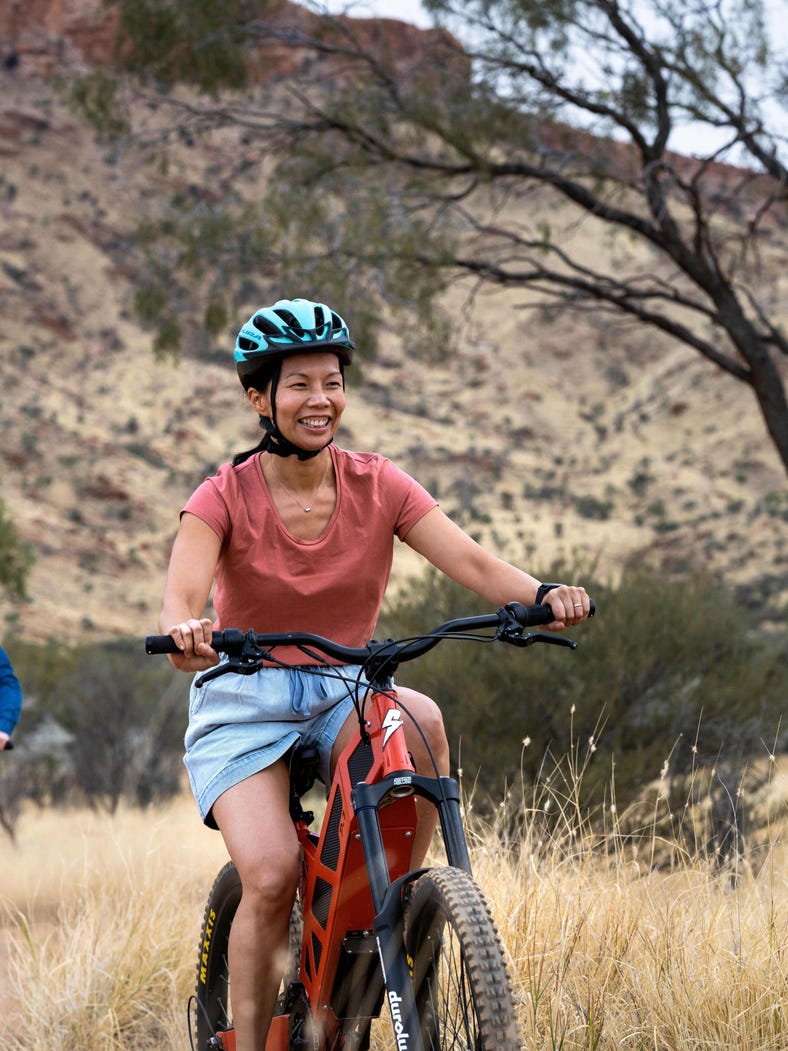
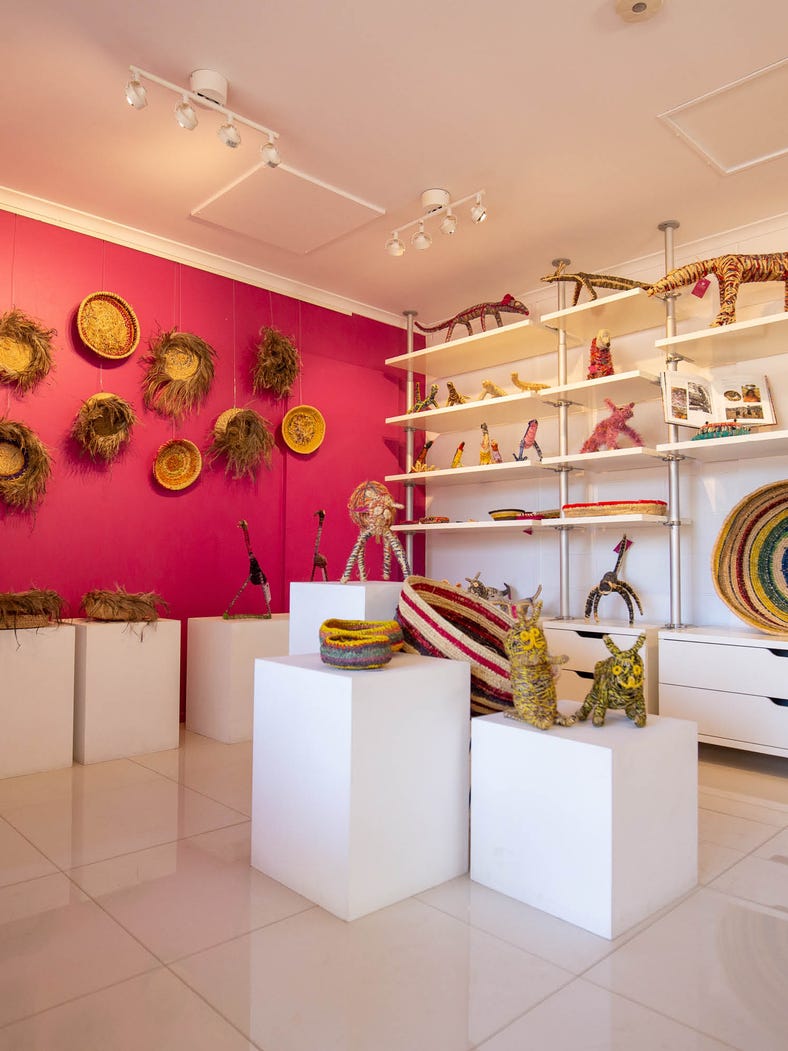
Eat up the upcycled charm
At Watertank Café, nearly everything from the building materials to tables and chairs are recycled. Second-hand décor, crockery, kids’ books and more have been diverted from landfill, and often sourced from charity stores which contributes to the community. The quirky, mismatched stuff is just part of the appeal. This indoor-outdoor eatery serving Australian café favourites also showcases local artists and musicians, and has abundant greenery that naturally cools.
Go natural
Get acquainted with local flora and fauna like Sturt’s desert rose and thorny devil lizards at Alice Springs Desert Park. This 1,300-hectare site plays an important role in conserving the region’s biodiversity, including through recovery programs for threatened species such as bilbies and rufous-crowned emu-wrens.
Stick around for the nocturnal tour, or head to Earth Sanctuary, which has been carbon-neutral since 1999. Starting with sunset drinks and canapés, their guided astronomy experience reveals the most sustainable entertainment in town: the Red Centre’s stunningly starry sky.
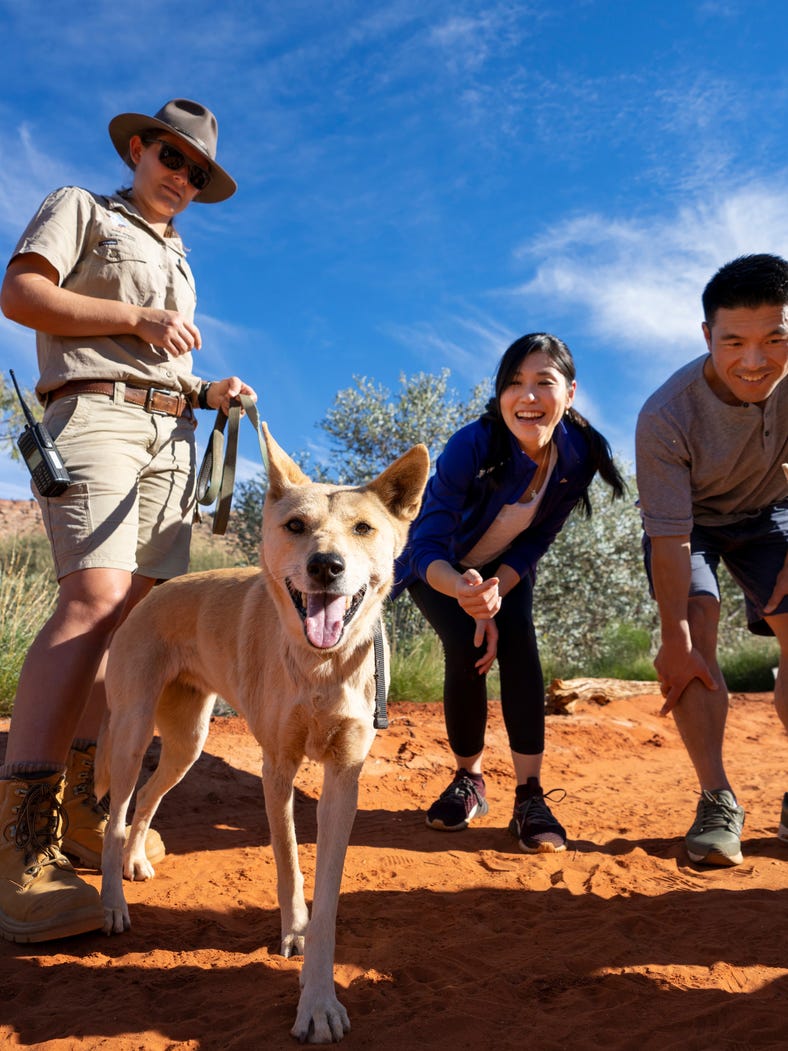
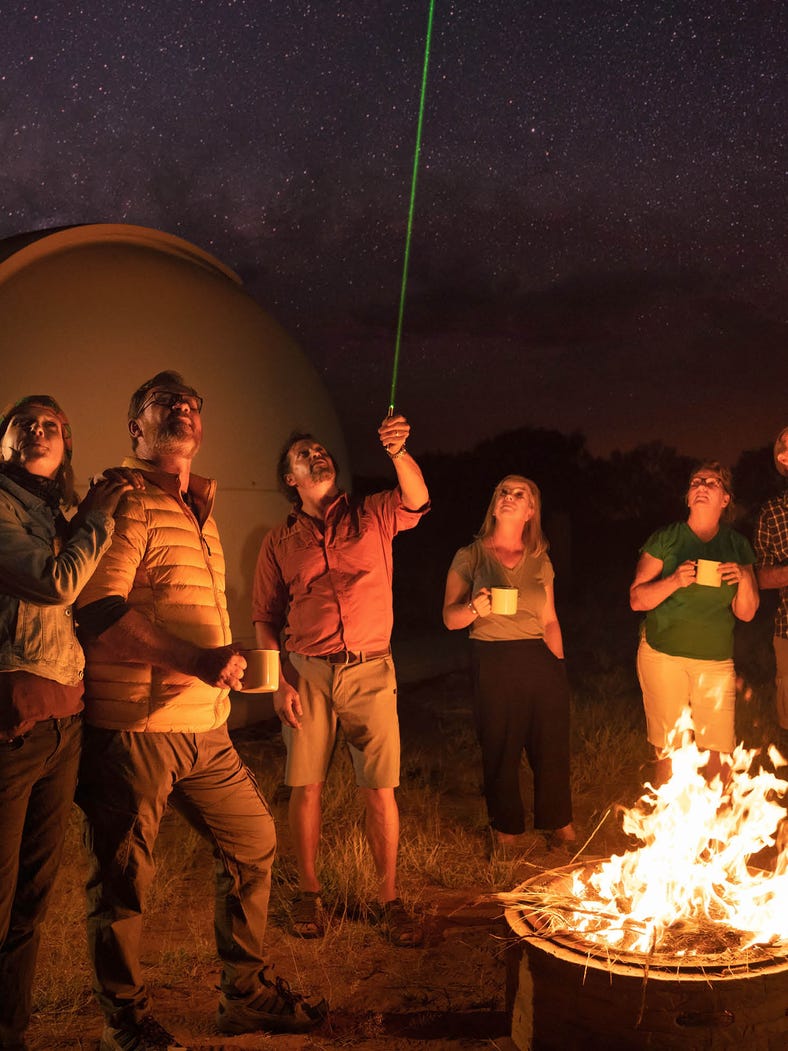
Day 3
Learn from nature’s original guardians
It’s about 320km from Alice Springs to Kings Canyon, so make an early start or pack provisions for a scenic picnic on the road (bring reusable plates, cups and cutlery if you can).
Along the way, take a break at Karrke, a small family-owned cultural tourism business. Their regular, hour-long experience reveals the Luritja and Pertame peoples’ food, bush medicine, wooden tools and weapons, jewellery made from vibrantly coloured seeds, and art, which is traditionally created using ochre or by drawing in the sand. These inherently sustainable practices have endured for millennia.
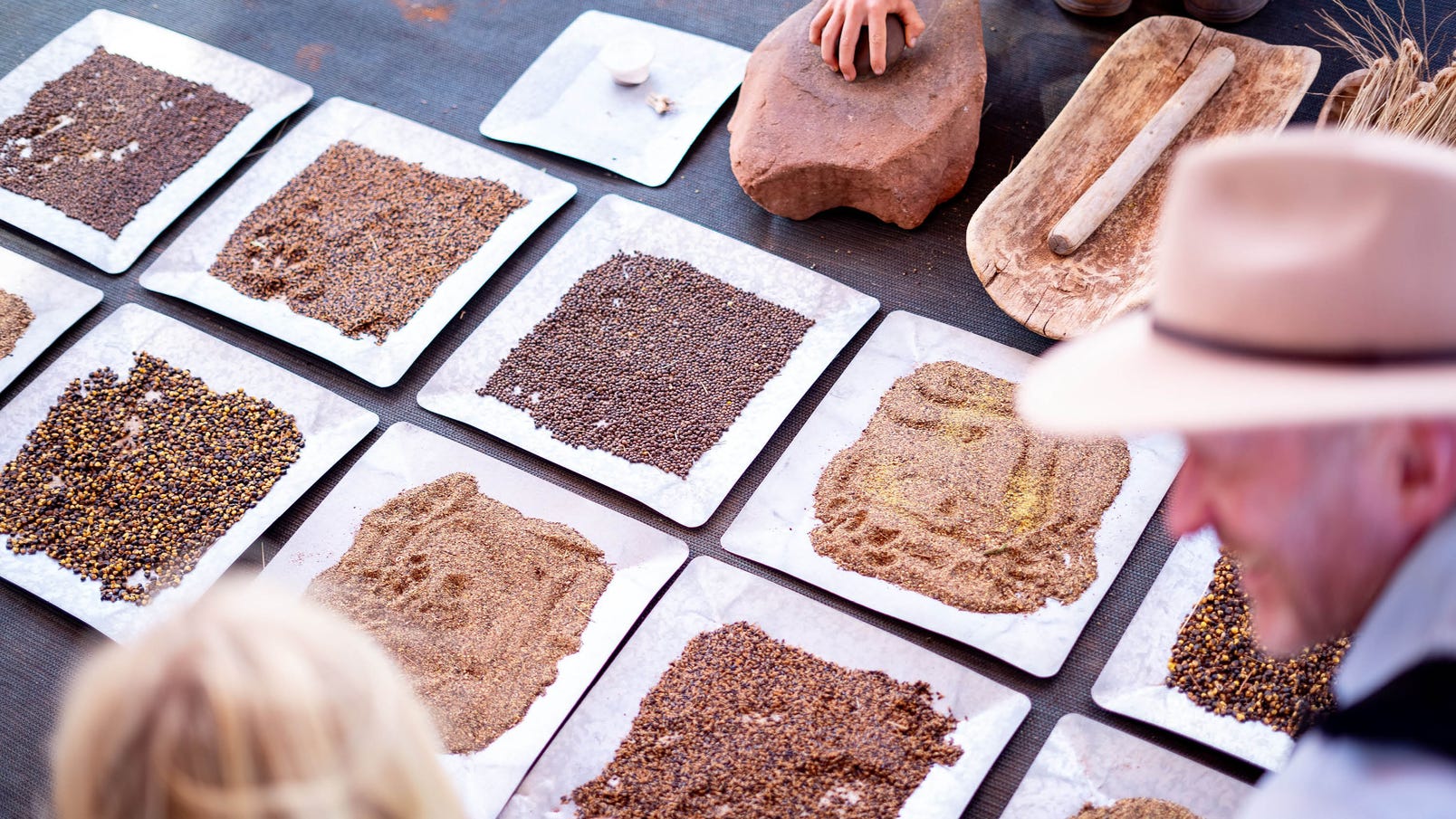
Experience comfort & joy in the wilderness
Settle in at Discovery Kings Canyon on the edge of Watarrka National Park. This resort and holiday park is designed to connect with nature, especially at Luritja Lookout. Here you will be wowed by the sunset hues glowing on Carmichael Crag and the George Gill Range, then Bruce Munro’s new Light-Towers outdoor installation when dusk falls.
Native ingredients featured in the resort’s menus are sourced from Kungkas Can Cook, a First Nations business that has trained the resort’s chefs in these foods’ uses and cultural significance. Savour Australian flavours like wattleseed, pepperberry, quandong and crocodile at Carmichael’s Restaurant, or during the magical Under a Desert Moon al fresco fireside dining experience.
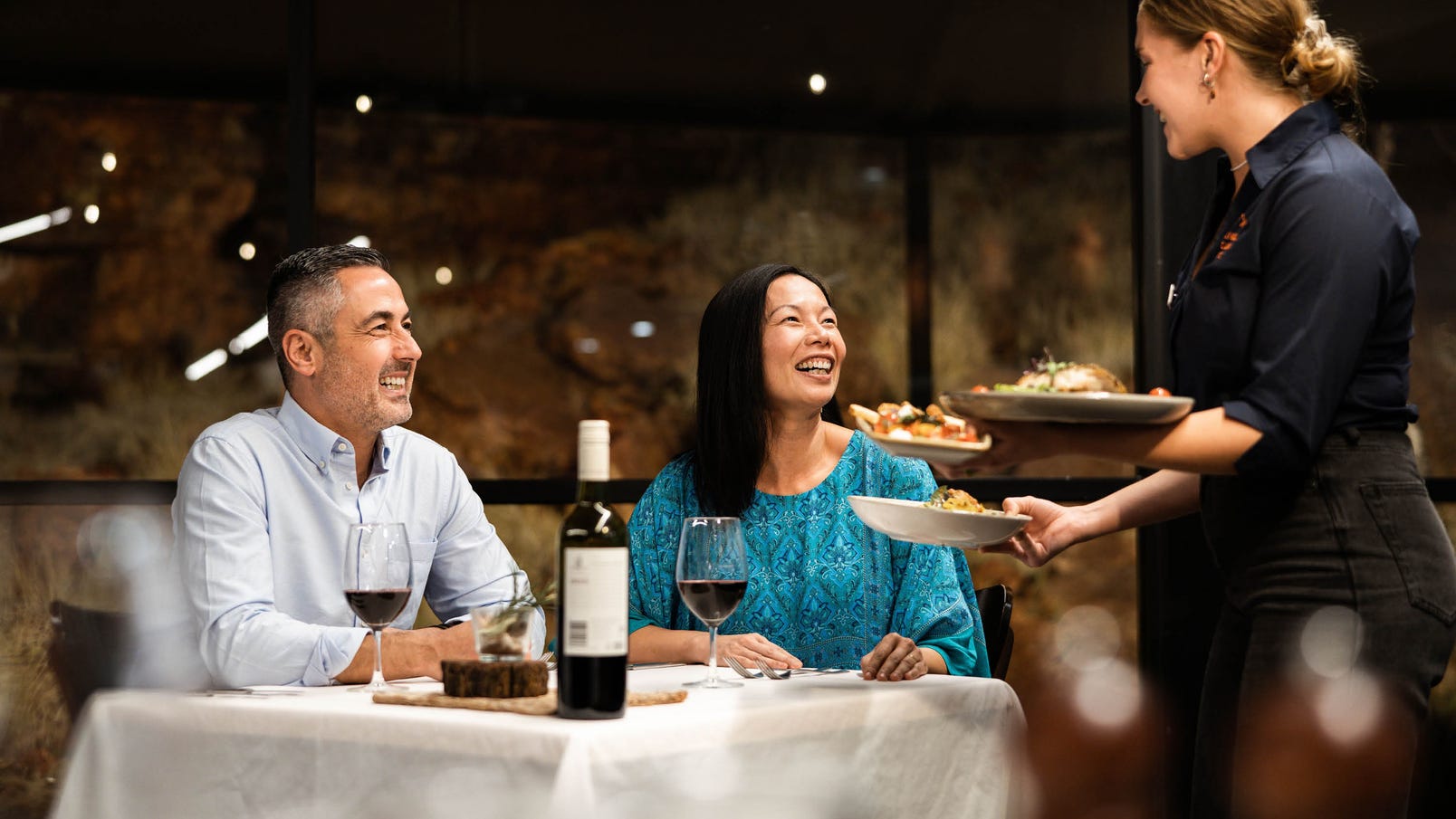
Day 4
Discover an ancient wonderland
Kings Canyon is 10 minutes’ drive away, and best experienced on the 6km rim walk at sunrise. Ephemeral light and timeless geology change with every step, revealing fresh shades of red, orange and even purple. From 360° vistas atop towering cliffs, to otherworldly sandstone domes and a shady waterhole where dinosaur-age flora thrives, this walk is Watarrka National Park’s bucket-list essential.
Take it to the next level
Drive 320km to Australia’s most famous rock, Uluru. Accommodation on Uluru-Kata Tjuta National Park’s boundary includes the ultimate in sustainability-meets-luxury, Longitude 131°, whose dining and experiences are exclusive to guests. Premium tents, all with eye-popping views of the main attraction, are sensitively designed to almost float above the desert, and maximise natural cooling and heating. Works by Aboriginal artists, including artists-in-residence, are displayed throughout the property.
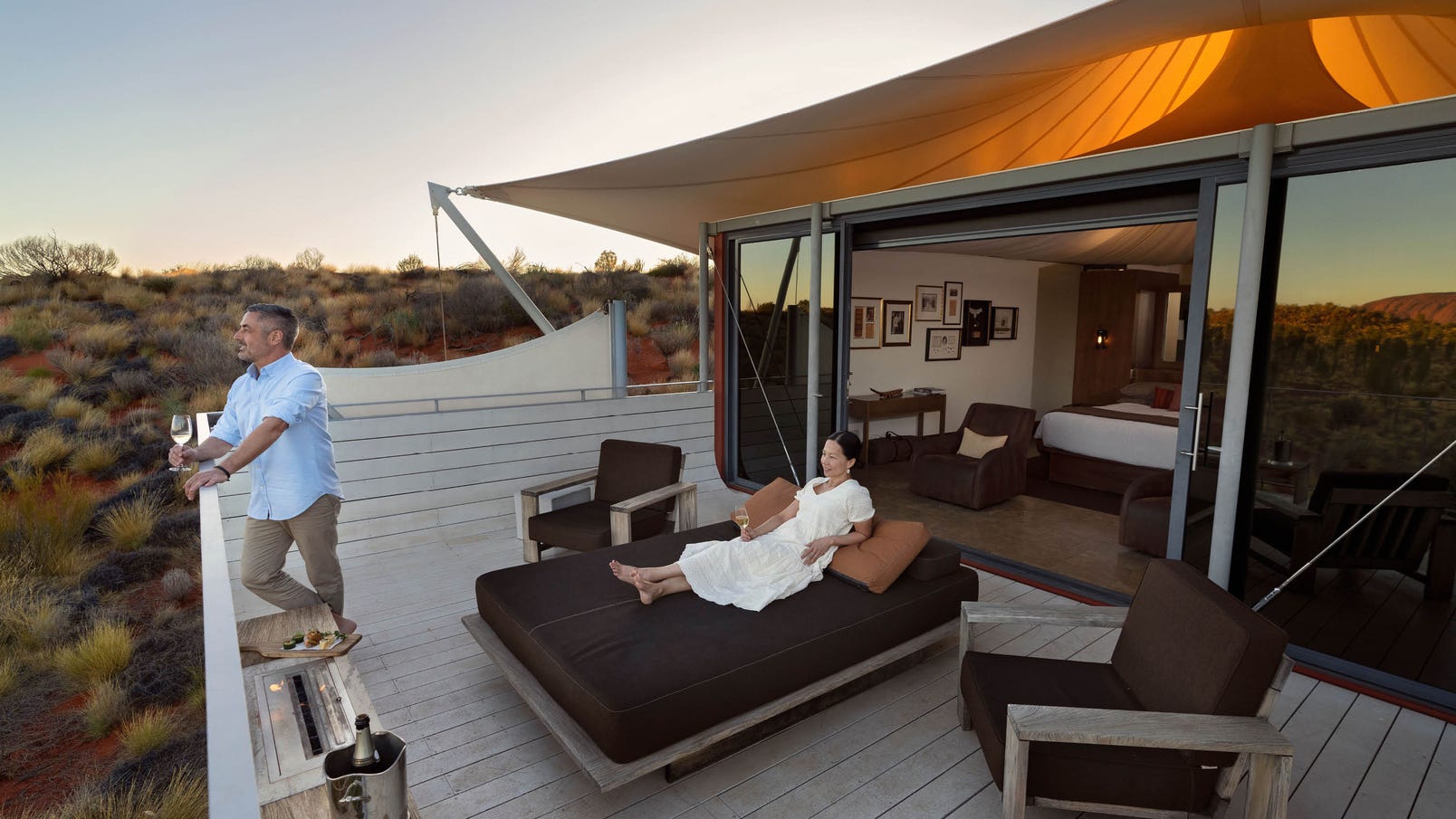
Eat, stay, love
Longitude 131° is just one of Voyages Ayers Rock Resort’s accommodation options, so no worries if you’re camping not glamping. The resort, which supports Aboriginal people through training, employment and business opportunities, plus the Anangu Communities Foundation, also offers numerous dining choices and experiences.
Consider lunch at Kulata Academy Café, where hospitality students from Voyages’ National Indigenous Training Academy gain experience. Don’t miss the Wintjiri Wiru sunset dinner. Enjoying drinks, canapés and a bush-tucker-inspired hamper enhances the excitement of first-of-its-kind cultural experience Wintjiri Wiru. Meaning ‘beautiful view out to the horizon’ in the Pitjantjatjara language, this choreographed drone, laser and projection show reveals an ancient story of the Anangu people, the Traditional Owners of Uluru.
Day 5
Say g’day to Uluru
Seen from afar, the iconic red rock rising 348m from the flat landscape is breathtaking, but looking closer at Uluru is also deeply rewarding. Wonder at it’s contours, crevices, caves and colours, woodland, waterholes, rock art and imposing height on the 10km base walk, or by cruising around the rock with Outback Cycling’s rental bikes. They are available from Uluru-Kata Tjuta Cultural Centre.
Connect with country
After your circumnavigation, visit the cultural centre, which is made of mud bricks and represents the two ancestral snakes that helped create Uluru. Learn about Anangu creation stories, and other aspects of their culture including over 30,000 years of sustainable land management. Take your time with interpretive displays, free presentations, and at the Aboriginal-owned art galleries, shops and café. Contribute to the conservation of mala, a tiny, threatened marsupial, by buying a unique souvenir of beautiful paper made from their droppings!
Rock on
A UNESCO World Heritage site, Uluru-Kata Tjuta National Park offers one amazing big red rock after another. About 50km from the cultural centre or resort, discover Uluru’s equally impressive neighbour, Kata Tjuta. Walk among this group of giant domes on the 3–4 hour Valley of the Winds circuit track, or meander your way to Karu Lookout, which is one-hour return. Be sure to linger for sunset, when Kata Tjuta glows like fire.
An even easier option is the Kata Tjuta Sunset tour, complete with bubbly and nibbles, offered by AAT Kings. This founding member of the TreadRight Foundation is committed to climate action, including through their Uluru depot’s solar power.
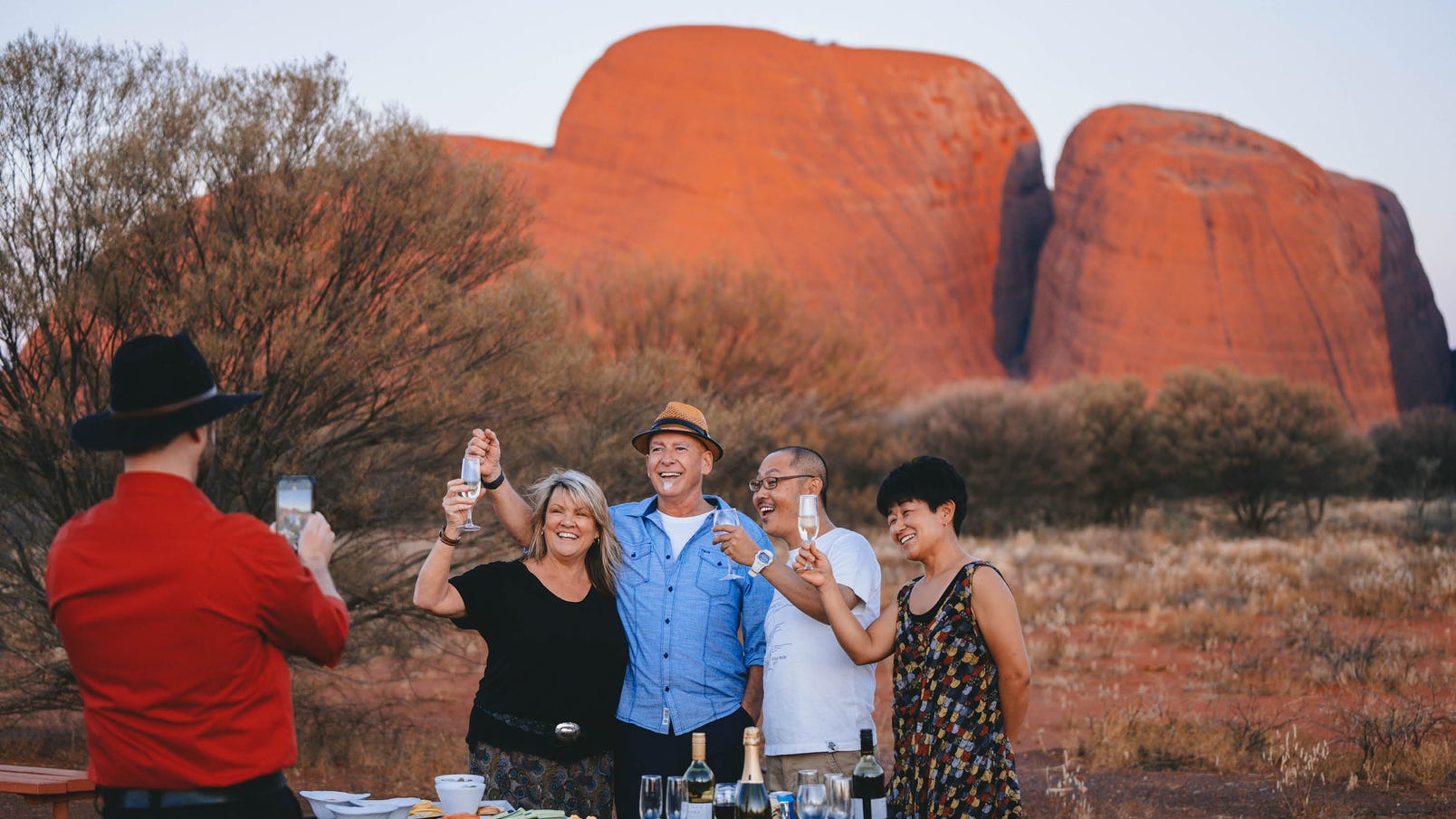
Day 6
Look, listen, learn
SEIT, which stands for Spirit, Emotion, Intellect and Task, specialise in small group tours that connect visitors to places through culture, history and nature. The Patji day tour is led by an Aboriginal guide, and offers the chance to hear from Traditional Owners, including about the late Paddy Uluru’s fight for Aboriginal land rights. Quietly connect with their homeland on a private sand dune with panoramic views of Uluru and Kata Tjuta.
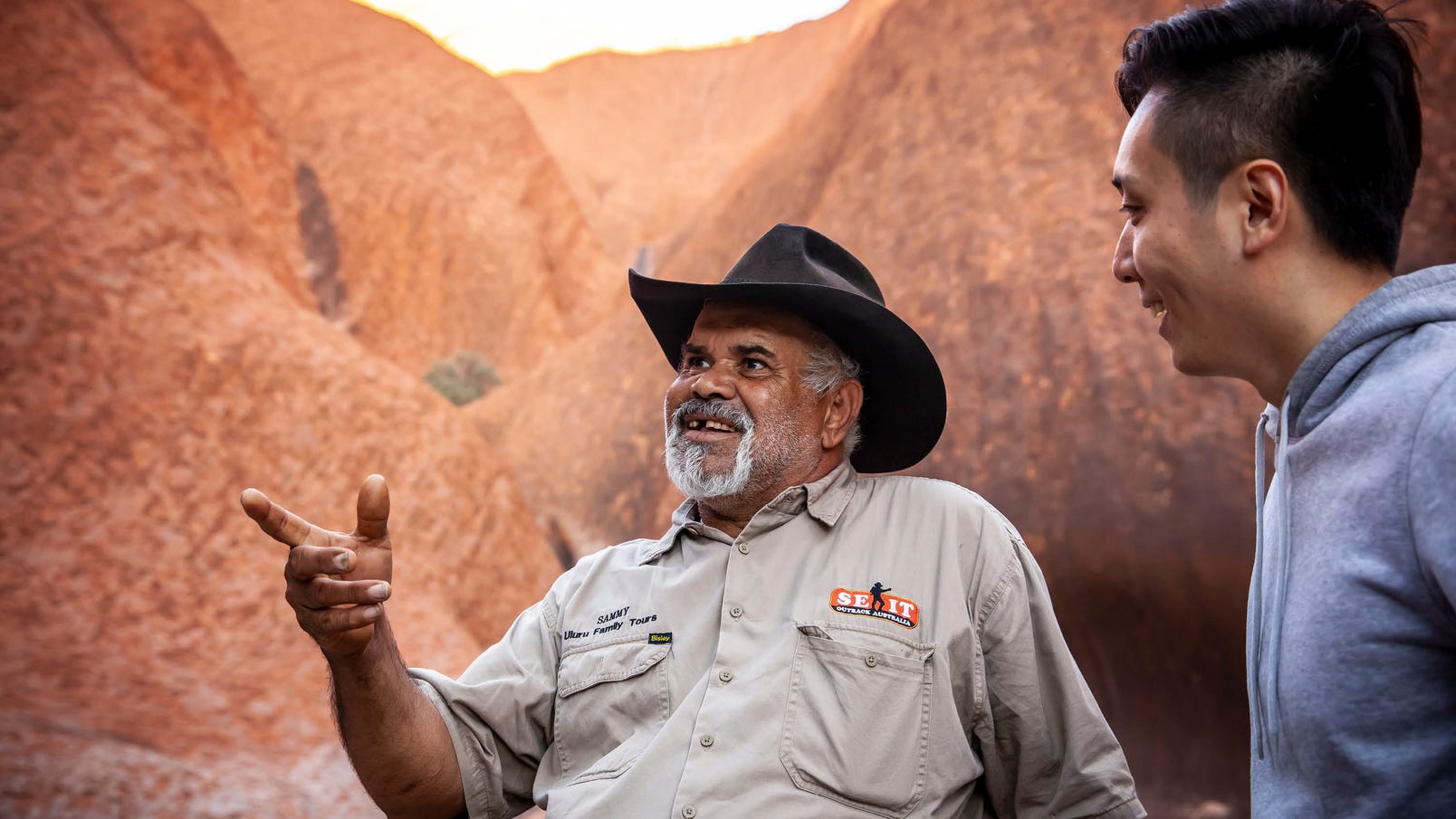
More looking, listening & learning
Want to fill the day, or take it slowly by just focusing on Aboriginal cultural experiences close to your accommodation? Ayers Rock Resort’s free experiences include a didgeridoo workshop, and guided garden walk celebrating native plants and their traditional uses. The new Gallery of Central Australia is also free, and showcases the work of emerging Indigenous artists of the Central Desert region. Get hands-on with Maruku Arts’ dot-painting workshop, presented by an Anangu artist in Pitjantjatjara and their interpreter.
Feast your senses
An unforgettable highlight of your trip, tonight’s outdoor dining and cultural experience is inspired by nature. A Night at Field of Light begins with sparkling wine, canapés, a didgeridoo performance and sunset vista of Uluru. As Bruce Munro’s Field of Light installation begins to glow, sit down to a 3-course meal starring bush-tucker ingredients. After the resident star talker’s interpretation of nature’s light show, wander among the installation’s 50,000 little lights morphing through a desert palette from ochre to blue.
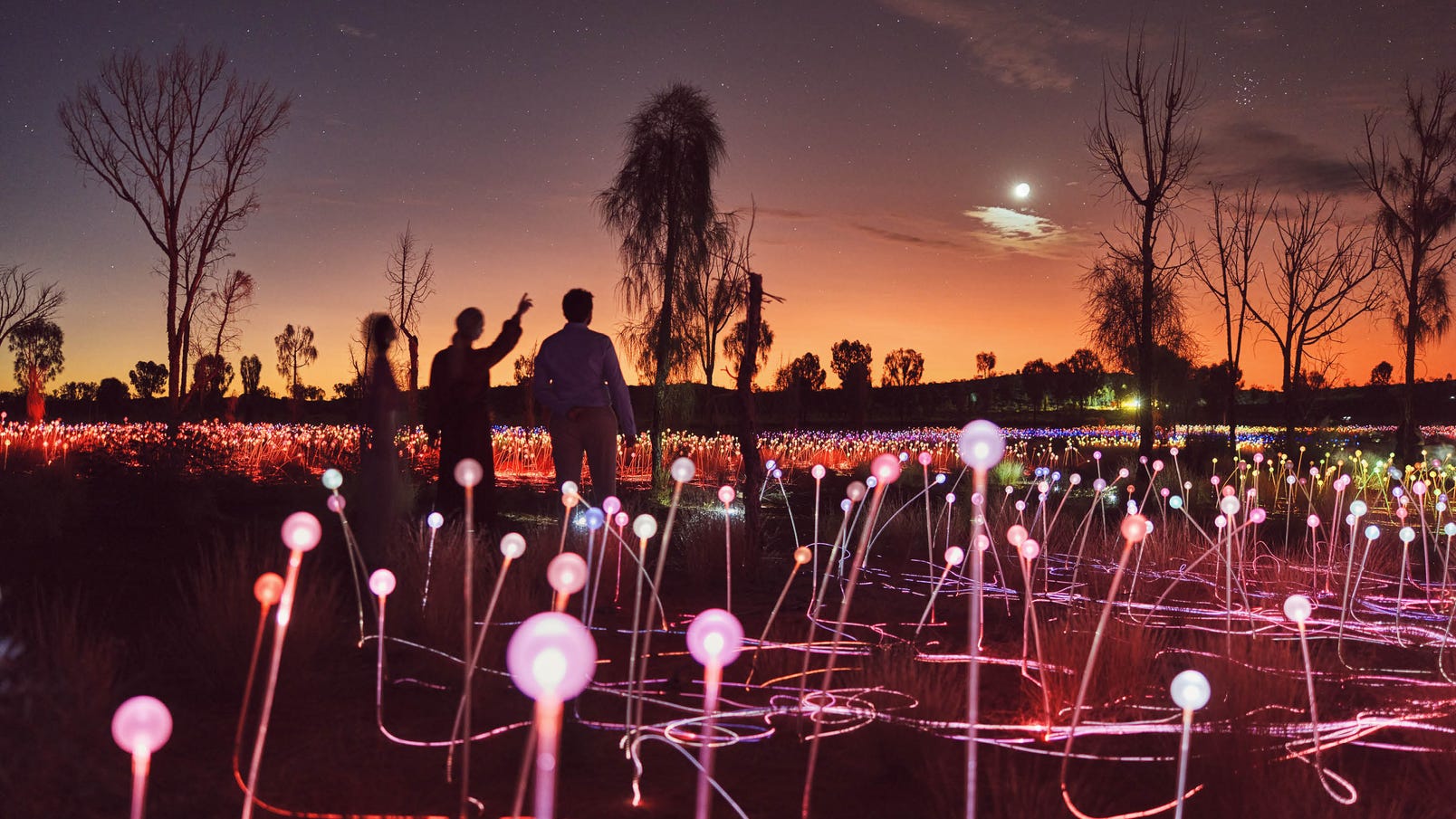
Day 7
Rise & shine
Watch the sun come up like never before on your final day in the Red Centre. Uluru Camel Tours’ sunrise experience offers epic vistas of Uluru and Kata Tjuta during a peaceful ride across the desert. Camels’ soft feet are kind to this fragile ecosystem, and their poo is sold as fertiliser by Uluru Camel Tours. From a zero litter impact policy to recycling materials for building fit-outs, this business actively embraces sustainability.
Make one last stop
It’s about 450km from the resort back to Alice Springs. Take your time, including at Curtin Springs, a cattle station and tourism business that only allows native grasses on the property. It’s not just used as stock feed, but also turned into beautiful handmade paper, with colours and textures that vary with grass types and seasons. Linger for a tour that reveals the paper-making process, and lunch at the rustic Wayside Inn.
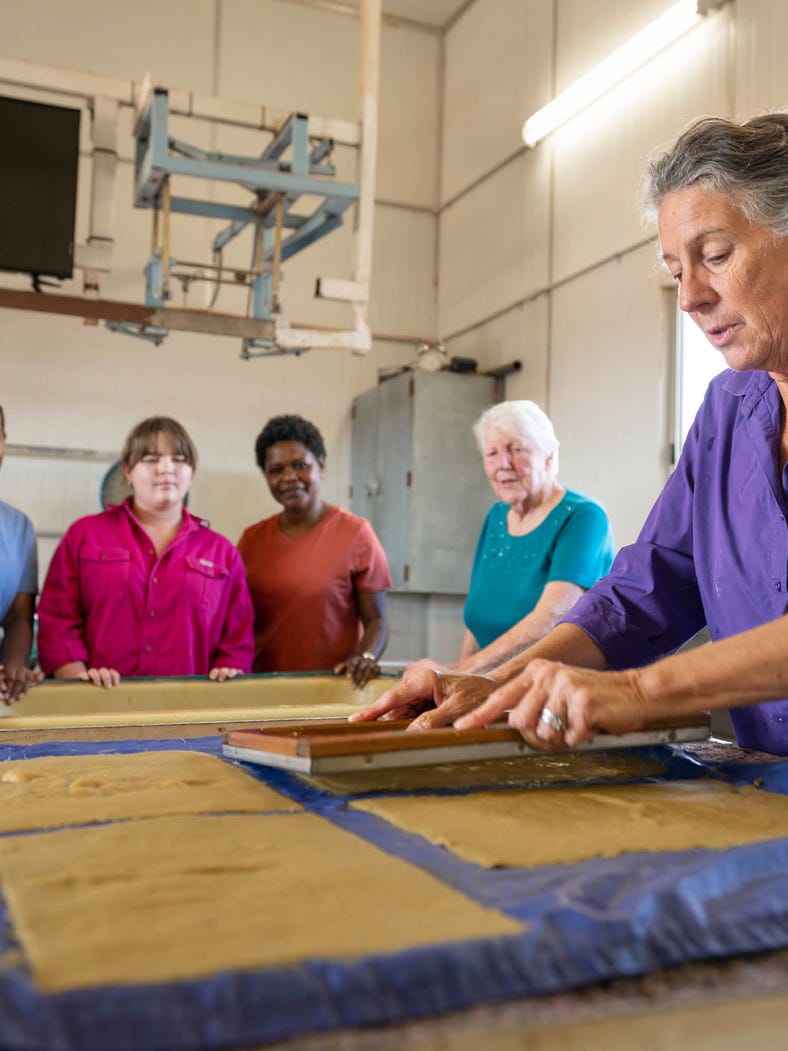
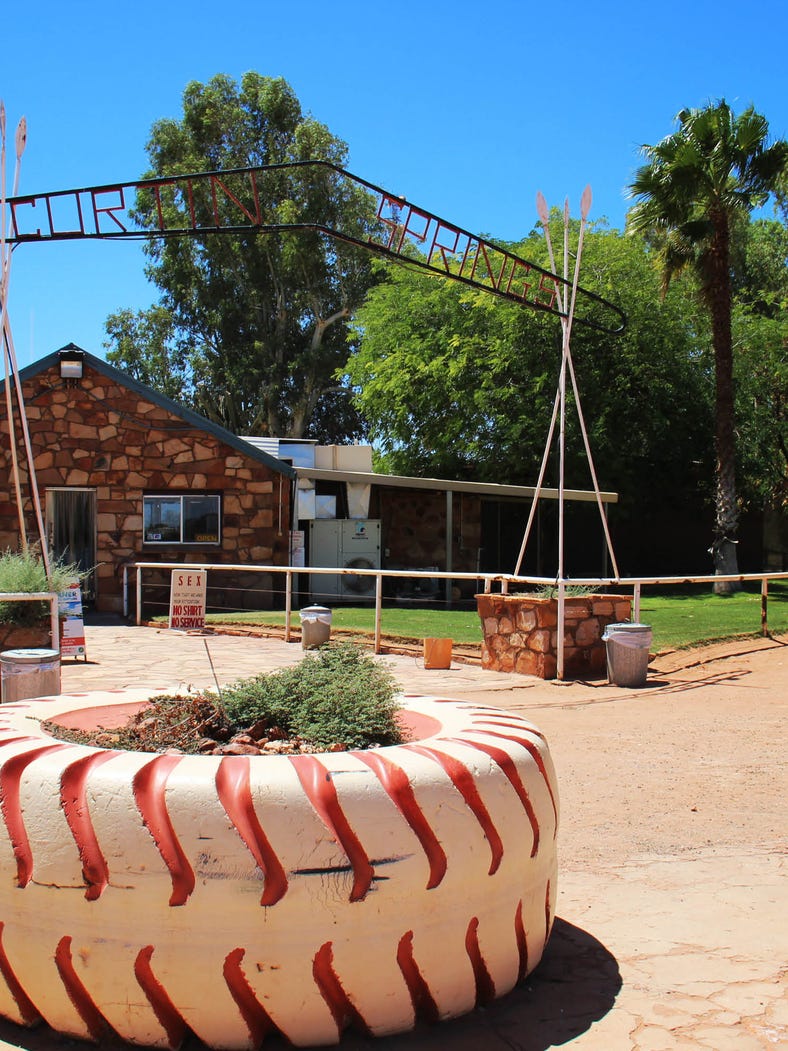
続けて検索する
その他のおすすめ記事


